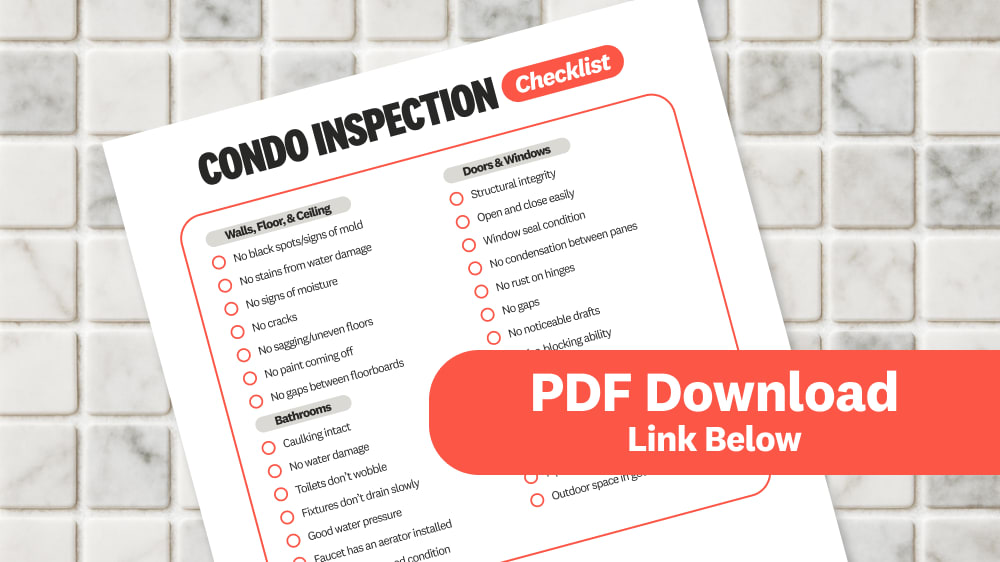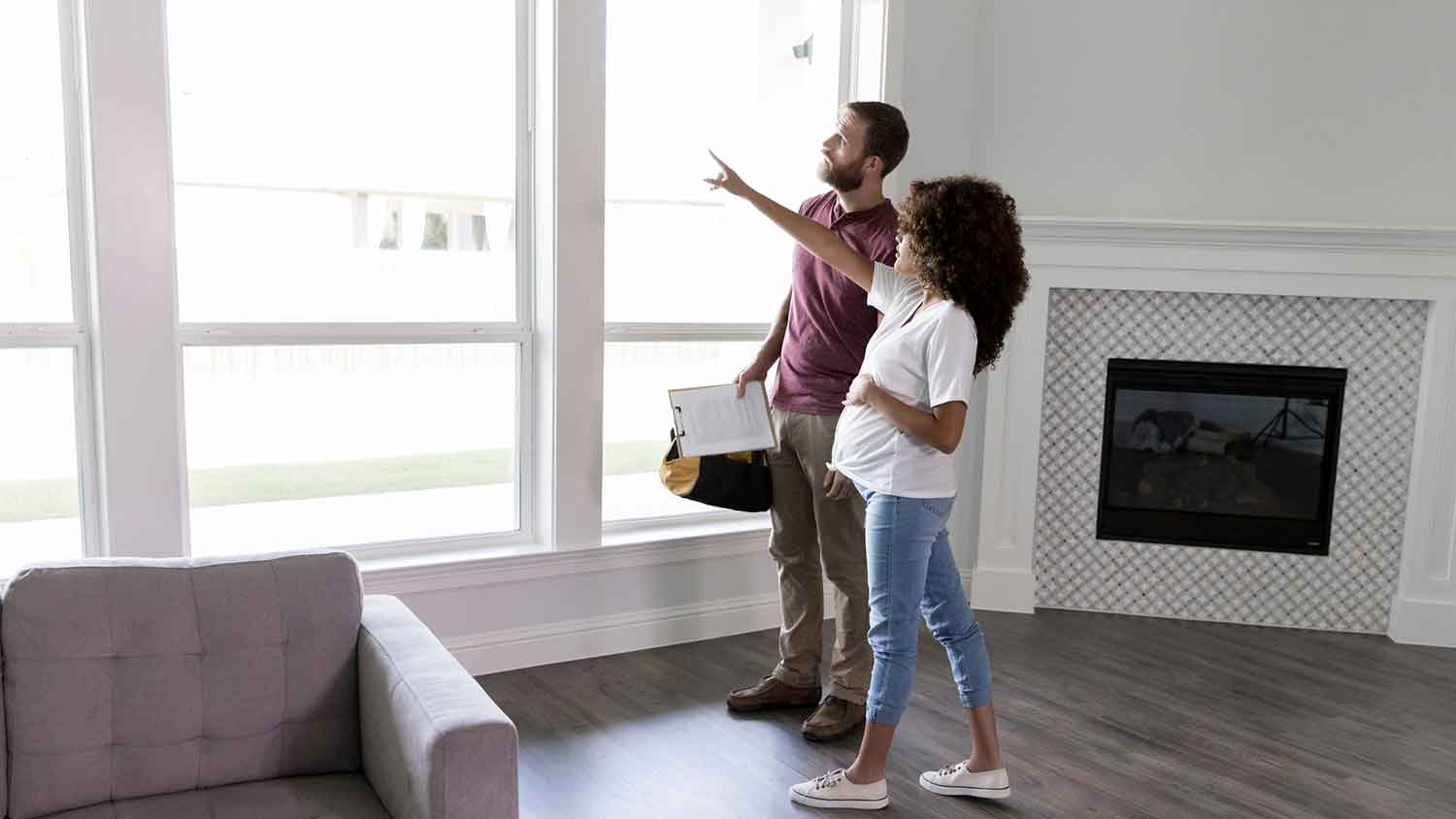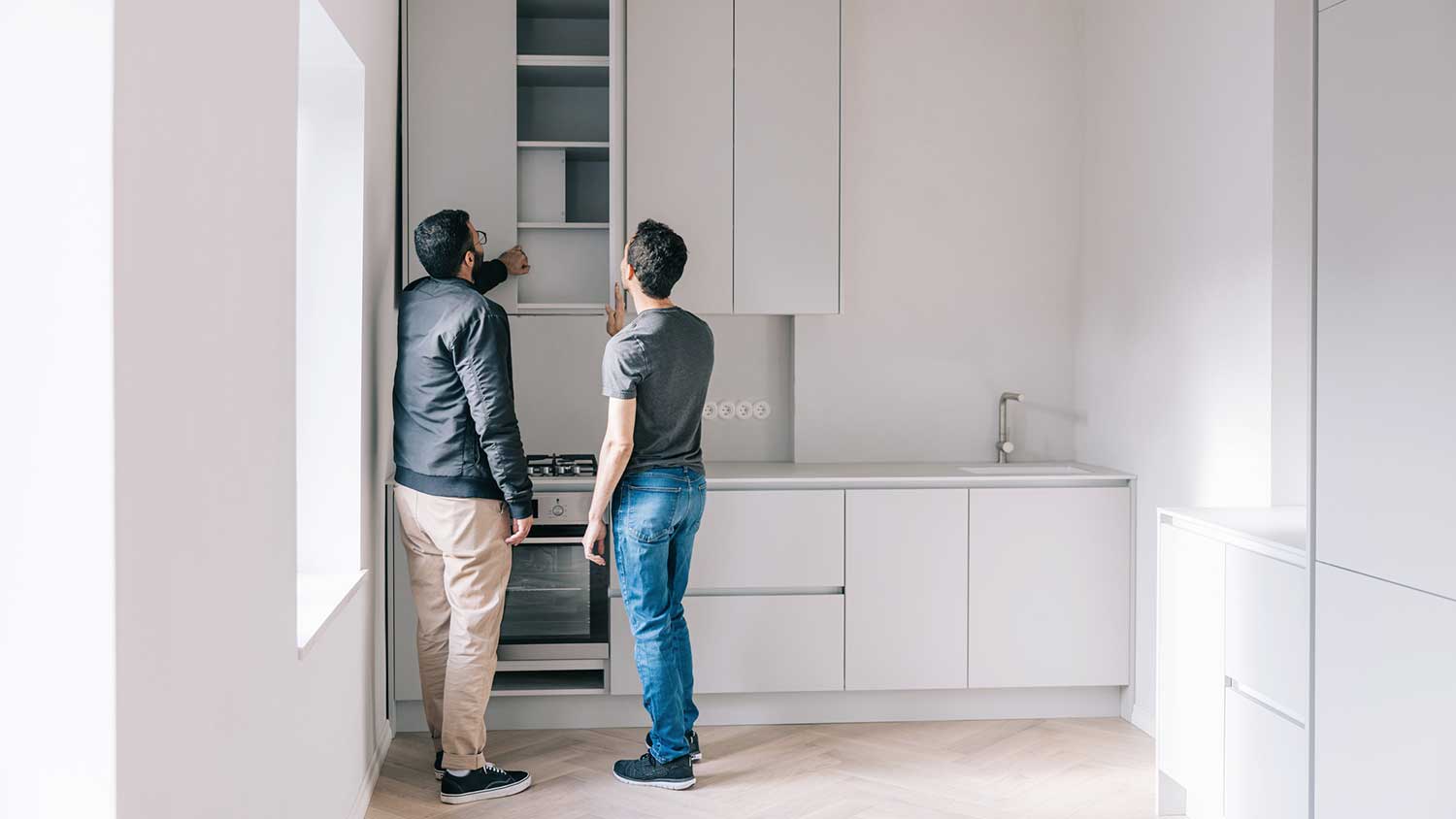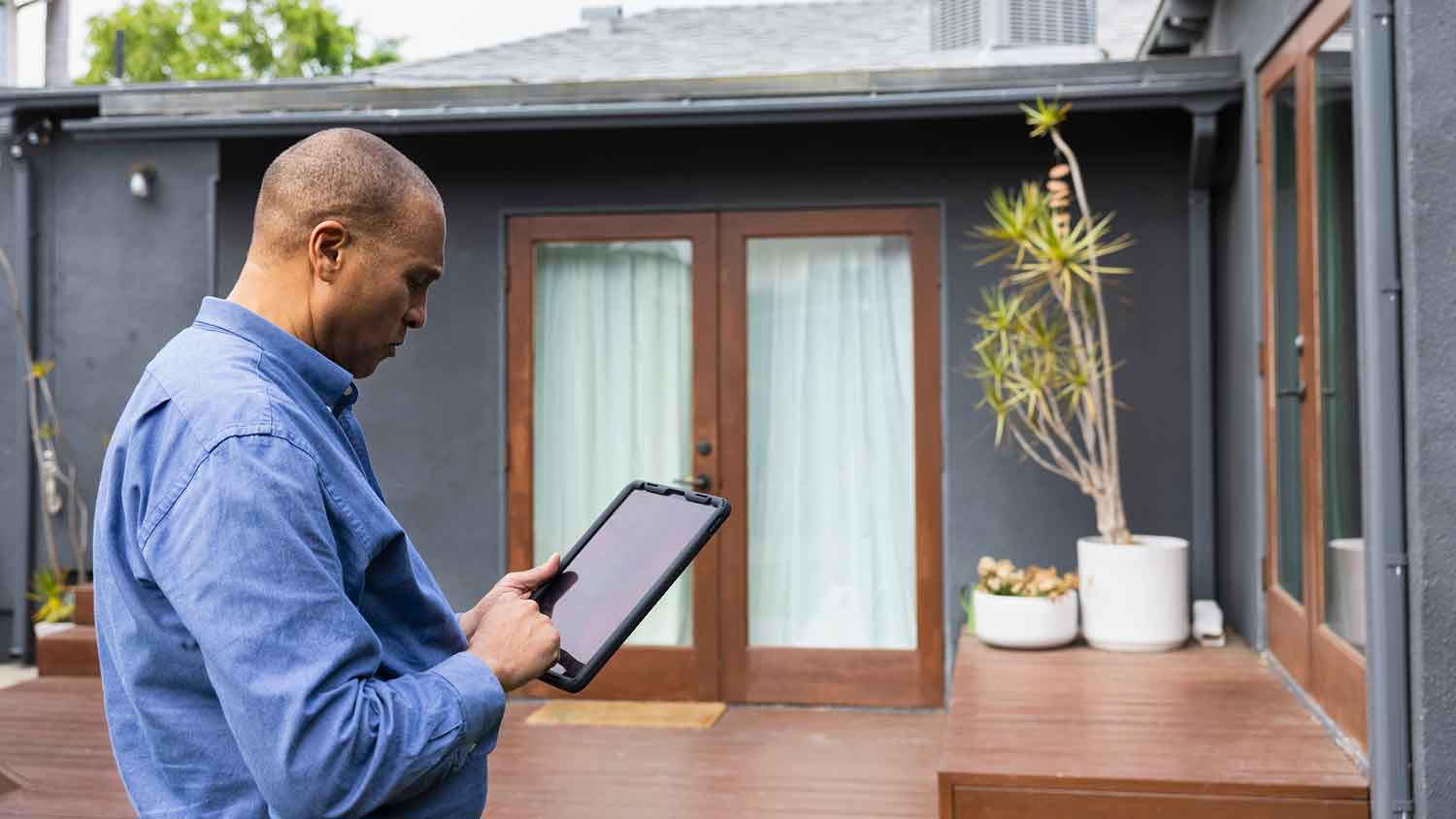
An attic inspection can confirm structural components, insulation, and home systems are all in order. Learn about attic inspection costs and what to know.
Don’t miss a thing, from the windows to the walls and everything in between


A thorough condo inspection provides you with an overview of the unit’s overall condition. Much like home inspections for detached houses, going through a comprehensive condo inspection checklist can identify potential issues to bring up with the seller. While home inspections for houses encompass the whole property, condo inspections typically focus on the interior of the unit only. Keep this checklist in hand during your own inspection, and hire a professional home inspector for a closer look.
The biggest difference between a condo inspection and a regular home inspection is that a condo normally falls within a homeowners association (HOA), which means exterior maintenance isn’t the responsibility of the unit owner. Key components of a condo, like the foundation, roof, siding, and even exterior windows and doors, may not require an inspection since it’s the HOA’s job to upkeep them.
The only other difference is that condos tend to have less square footage, so they often take less time to complete and are less expensive in most cases.

As you walk through the condominium, pay close attention to the floors, walls, and ceiling: They can tell you a lot about the general condition of the unit.
Make note of the following as you walk through the unit:
Black spots and other signs of mold
Stains from water damage
Signs of unexpected moisture
Cracks in the ceiling or walls
Sagging or uneven flooring
Paint coming off the ceiling or walls
Gaps between floorboards and/or baseboards

The doors and windows are a critical part of a condo inspection checklist for buyers. Look for signs of mold and water spots on windows and window frames in particular. They may point toward water damage or leaky windows.
When looking at doors and windows, be sure to inspect the following, too:
Structural integrity
Ease of opening and closing
Window seal condition
Condensation between panes of glass
State of the hinges, like rust
Gaps that allow outside air into the unit
Noticeable drafts
Noise-blocking ability
Just like when inspecting a standard house, a potential buyer’s condo inspection checklist should also include appliances and fixtures that come with the unit. Not every condo will include a refrigerator, stove, and washer and dryer, but for units that do, it’s important to make sure they are clean, work as they should, and are well-maintained. Repairing or replacing an appliance after closing can easily become another cost you did not expect to pay.

While you are already in the kitchen testing appliances, open and shut all the cabinets and drawers. Make sure they haven’t gone crooked or gotten misaligned over time. They should be level, opening and closing with ease, and remaining closed rather than swinging open. If the unit has other built-in shelving or cabinetry, check to see if they are level and in good condition, too.
Along with the kitchen, bathrooms are another crucial part of any home. The higher humidity, amount of plumbing, and built-in fixtures like the bathtub and toilet justify a very close look, specifically for signs of water damage and mold growth.
In particular, take the time to look at the following:
Caulking around the tub and shower areas
Caulking around the bathroom sink(s)
Water damage behind or below the toilet or sink
Toilets that wobble
Fixtures don’t drain slowly
All fixtures have good water pressure
Faucet has an aerator installed
The fittings for the toilet, sink, bathtub, and shower are in good condition
This is one factor that may distinguish the inspection cost of a condo from that of a house. Major systems like HVAC and electrical sometimes belong to the condo building as a whole, much like a roof and other exterior improvements. Issues that arise with building systems may become the responsibility of the homeowners association (HOA). An inspection is still worth it, but it might only uncover problems that you need to get the HOA to fix after closing.
This is one reason that home inspection costs for smaller condos can sit as low as $200, while a standard house inspection is closer to $400.
There are at least three main reasons to include these systems in your condo home inspection, regardless of who’s responsible for maintaining them. Keep in mind that:
You are still responsible for plumbing, electrical, and other systems in your individual condo unit, like pipe connections and frayed wiring.
Your individual condo unit may have its own HVAC system rather than one that’s shared with the rest of the building.
Issues with the building’s major systems can become your responsibility if your HOA charges assessments for repairs of shared components.

If you are lucky enough that your possible home-to-be has an outdoor space, be sure to include it in your condo inspection checklist. Check the blocks or planks on your deck or patio, and conduct a balcony inspection, if applicable, to look for signs of damage, wear, or discoloration. Make sure these areas are draining well, too.
Along with building systems, remember to look at the common areas and elements in the condo building. They can say a lot about the HOA and how well it’s maintaining the building as a whole. Some of the questions to ask when looking for a condo include the condition of hallways, lobbies, and amenity areas. Check the exterior of the building, including the roof and landscaping, as well.
Read up on the history of the building. In terms of what to look for in a condo document review, keep an eye out for persistent problems and recent repairs. They can speak to the overall upkeep and status of the building.
On average, a professional home inspection costs $345, but may range from $185 to $500 or more, depending on the type of dwelling and its size. For example, a home that includes an attic costs more to inspect than a standard condo inspection because this space can be difficult to access and may be finished or unfinished. Some inspectors charge a flat fee while others determine their pricing by square footage. Contact at least three inspectors for quotes before booking an appointment and ask about what’s included.
A DIY once-over is a good way to prepare for a professional home inspection and better understand the findings, but you must hire a professional home inspector near you before moving forward with a purchase.
When you hire a professional for the job, they will provide you with a complete home inspection report of their findings, which very often will include problems that you missed as a DIYer. They may also flag possible warning signs that warrant further investigation, so it’s important to read through this document carefully.
From average costs to expert advice, get all the answers you need to get your job done.

An attic inspection can confirm structural components, insulation, and home systems are all in order. Learn about attic inspection costs and what to know.

Drone roof inspection costs vary depending on the roof’s size, complexity, and material. Use this guide to budget for a drone roof inspection.

If you’re buying a home, having an inspection offers reassurance that it’s in good condition. How much a home inspection costs varies depending on the home's size, age, condition, and location.

Buying a house “as-is” means the seller doesn’t need to make any repairs before you move in. Learn more about the pros and cons of as-is homes.

A home inspection is an investment in your property's health and longevity. Discover why a home inspection is important even if you don’t plan to sell.

Buying a home soon? Use our home inspection checklist for buyers to understand what the professionals are looking for when assessing your future home.